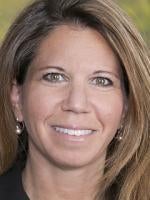As the country ramps up to contain the rapid spread of COVID-19, the governors of New York and Colorado have called on former health care workers to support health systems stressed by the coronavirus.
Doctors and nurses, for example, who currently work in another field or are retired with an active medical license, or one that can be reactivated, are encouraged to “dust off their scrubs.” Both governors recognize that many of the health care providers treating patients with the coronavirus have been forced to self-quarantine for at least two weeks after coming in contact with a confirmed coronavirus case, thus creating a shortage of doctors and nurses available to treat patients for any medical need.
Governor Cuomo of New York suggested, but has not yet ordered, that former doctors and nurses "reconnect" with their past employers so that an "on call" reserve can be available.
Professional Liability Concerns
Such a request, which could soon become an official declaration, raises professional liability questions, such as would Good Samaritan laws shield these volunteers from liability? Or would the malpractice insurance of hospitals or nursing homes extend coverage to include these volunteer nurses and doctors?
Under the Good Samaritan laws that grant immunity, if the Good Samaritan makes an error while rendering emergency medical care, he or she cannot be held legally liable for damages in court. However, two conditions usually must be met: (1) the aid must be given at the scene of the emergency and (2) if the "volunteer" has other motives, such as the hope of being paid a fee or reward, then the law will not apply.
Does the crisis resulting from COVID-19 qualify as an emergency? One could argue that an emergency is not an acute unexpected set of circumstances where the provider is forced into quick action. This may not extend to a nurse appearing at the door of a hospital to provide medical services under the current set of circumstances. Furthermore, to avail themselves of the Good Samaritan law protection, returning nurses could not expect to be paid for their services.
Regardless of whether they are going to be compensated, who is going to afford the nurse or doctor a defense or liability indemnification? Will the hospital’s liability insurance extend coverage or vitiate an exclusion in its policy?
One also should consider whether there would be a limitation on the protection if the care provider’s services weren’t limited to patients with the coronavirus. Certainly, all units in a hospital would suffer if there were a shortage of staff due to quarantine.
Executive or legislative action could encourage participation, for example, by extending something akin to Good Samaritan protections to these health care “returnees” and their vicariously liable employers during this crisis.
Summary
In times such as these, we as members of a community must work together to contain the spread of the virus and protect each other without the fear of liability for any health care worker who returns to a hospital to help. This mandate poses an interesting question for the underwriters, as communities balance the twin priorities of containment and preparedness.



 />i
/>i

